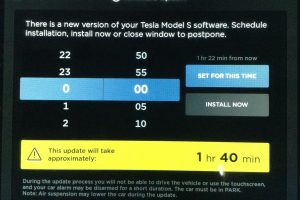Volkswagen has teamed up with Tesla in support of slashing import duties in India, the major barrier between automakers selling their vehicles in the market due to the high rates the country’s government has equipped to boost local manufacturing.
For the last few months, Tesla has made more progress toward entering India with its vehicles, hoping to increase sales in the fifth-largest automotive market globally. In 2021, Tesla has made more progress with the India entrance than ever before, receiving business licenses, registering itself as an entity with the ability to sell vehicles, and establishing a team of company executives to oversee the entire operation. It seemed that Tesla would finally enter the market, bringing clean and sustainable all-electric powertrains to the oil-savvy nation of India.
However, import taxes are a big hold up in the process currently. Cars with a price tag of $40,000 or less have a 60% import tax applied to them, while anything more than that number has a 100% duty, effectively doubling the price of the car. Tesla attempted to lobby with India’s government officials to reduce the import duties. Still, numerous members of the Parliament have declined to work with the automaker, as local manufacturing takes priority. Some government officials are concerned that it could take momentum away from domestic carmakers and auto parts suppliers. The deal must benefit India’s local entities.
This led to a bottleneck in Tesla’s potential entrance, as CEO Elon Musk stated he was unwilling to establish a manufacturing plant in India without testing demand. Demand would be measured through imports, and if sales figures in India were hefty enough that a production facility would be justified, Musk said that Tesla would build an assembly facility in the country. However, Tesla had pushback from politicians who said that individual companies could not receive incentives, but Tesla pushed for all EV makers to qualify for the reductions. Earlier this week, India’s officials announced there were talks to reduce duties to encourage non-domestic manufacturers to sell their products in the country.
Now, Volkswagen AG is getting involved and is pushing for lower import duties in India as well. The company is proposing reductions to as little as 25% for import duties, stating that the reduction would not pose a “big threat” to domestic companies but would still make imported vehicles more expensive than local options.
“The market for EVs has to be big enough for investments to come in, and for that, we shouldn’t be placing barriers,” Managing Director of Skoda Auto Volkswagen India Gurpratap Boparai said to Reuters.
Volkswagen AG has several electric vehicles out across its different brands, including Audi, and of course, its own VW brand with the ID.3, ID.4, and other models that are soon entering production. However, it is aiming for only its Volkswagen and Skoda brands to enter the market. This will not occur unless there is movement on import duties.
Attempts to decrease the duties have resulted in other manufacturers like Mercedes-Benz and Hyundai voicing support for the proposed cuts. However, local companies, like Tata Motors, are not encouraged by the proposals. Once again, the argument is local manufacturing should be prioritized. Boparai disagrees.
“I’m not at all saying that local manufacturing should not be encouraged … but duty of 60% and 100% is prohibitively high at this juncture,” he added.





